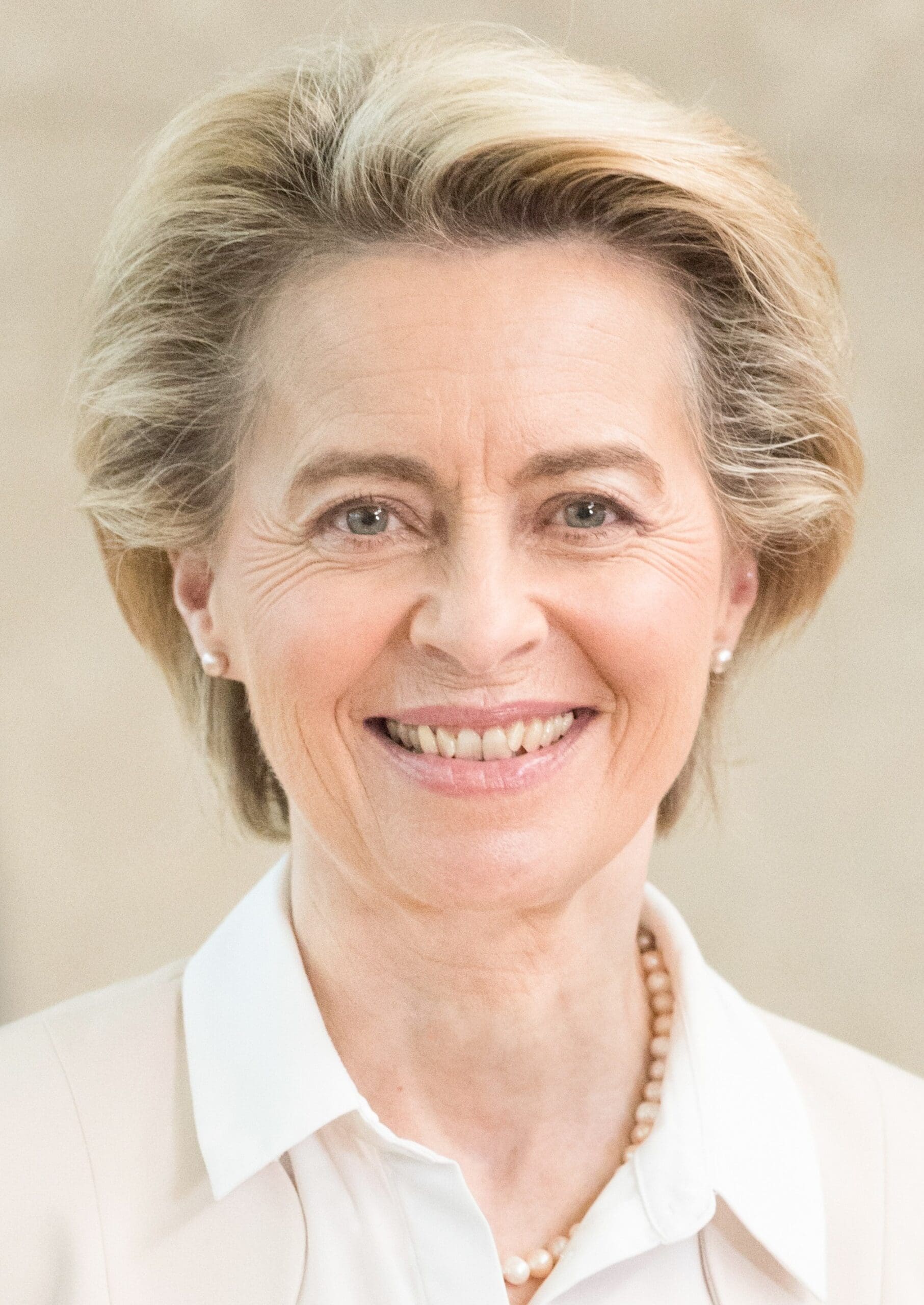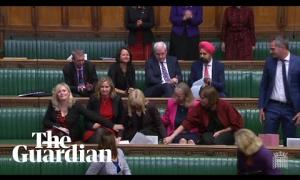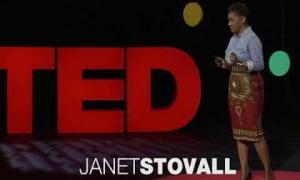This Is a Time to Build Trust
January 17, 2024
"It has never been more important for the public and private sector to create new connective tissue, because none of these challenges respects borders, they each require collaboration."
Excellencies, ladies and gentlemen, dear Klaus, your annual Global Risk report makes for a stunning and sobering read. For the global business community, the top concern for the next two years is not conflict or climate, it is disinformation and misinformation, followed closely by polarization within our societies. These risks are serious because they limit our ability to tackle the big global challenges we are facing. Changes in our climate and our geopolitical climate, shifts in our demography and in our technology. Spiraling regional conflicts and intensified geopolitical competition, and their impacts on supply chains. The sobering reality is that we are once again competing more intensely across countries than we have in several decades. And this makes takes the theme of this year’s Davos meeting even more relevant. Rebuilding trust. This is not a time for conflicts or polarization. This is a time to build trust.
This is a time to drive global collaboration more than ever before. This requires immediate and structural responses to match the size of the global challenges. I believe it can be done, and I believe that Europe can and must take the lead in shaping that global response. The starting point for that is to look deeper at the Global Risk Report to map out a way forward. Many of the solutions lie not only in countries working together, but crucially, on businesses and governments, businesses and democracies working together. It has never been more important for the public and private sector to create new connective tissue, because none of these challenges respects borders, they each require collaboration to manage risks and to forge a path forward. And this is what I want to talk today about.
While governments hold many of the levers to deal with the great challenges of our time, business have the innovation, the technology, the talents to deliver the solutions we need to fight threats like climate change or industrial-scale disinformation. Europe is uniquely placed to show how this can work, because our democracies and our businesses have interests that align, creating prosperity, wealth and security for people, creating a stable environment to unlock innovation and investment and creating equal opportunity and freedom.
And this is more important than ever as we start 2024, the biggest electoral year in history. Democracies across the world will head to the polls and half of the global population will be affected. This includes over 450 million people in the European Union, a union of 27 democracies, where all of us have the right to speak our mind, to be ourselves, even if we are different from the majority. In a democracy, it is the people with their choices and behaviours who pick winners and losers in the economic arena. Companies are free to compete. Change-makers are free to innovate. Merit determines economic success, and our rules are built to ensure this. To protect intellectual property, to protect the safety of industrial data, to protect the savings of people and companies and Europe stands up for global trade based on fair and open markets.
Of course, like in all democracies, our freedom comes with risks. There will always be those who try to exploit our openness, both from inside and out. There will always be attempts to put us off track. For example, with disinformation and misinformation.
And nowhere has there been more of that than on the issue of Ukraine. So let me provide you with some real information. Russia is failing on strategic goals. It is first and foremost a military failure. We haven’t forgotten that when Russia invaded Ukraine, many feared that Kyiv would fall in just a few days and the rest of the country within weeks. This did not happen. Instead, Russia has lost roughly half of its military capabilities. Ukraine has driven Russia out of half of the territories it had captured. Ukraine has pushed back Russia’s Black Sea fleet and reopened a maritime corridor to deliver grain to the world. And Ukraine has retained its freedom and its independence.
Russia’s failure is also economic. Sanctions have decoupled its economy from modern technology and innovation. Russia is now dependent on China. And finally, Russia’s failure is also diplomatic. Finland has joined NATO. Sweden will follow soon and Ukraine is closer than ever on its path to the European Union. And all of this tells us that Ukraine can prevail in this war. But we must continue to empower their resistance. Ukrainians need predictable financing throughout 2024 and beyond. They need a sustained supply of weapons to defend Ukraine and regain its rightful territory. They need capabilities to deter future attacks by Russia, and they also need hope. They need to know that with their struggle, they will earn a better future for their children and Ukraine’s better future is called Europe. And it was with immense joy that last month we decided to launch the negotiations of accession for Ukraine’s EU membership.
This will be Ukraine’s historic achievement and it will be Europe responding the call of history. Ladies and gentlemen, we all know that Russia’s invasion has also had an impact on the cost of living and the cost of doing business here in Europe. I know how much that has affected some of your companies, but I started by saying that the risks we face require collaboration between countries and businesses, and that our joint capacity to respond was far stronger than we might believe. And nowhere is this best exemplified than when it comes to energy and sustainability. Two years ago, before Russia’s aggression against Ukraine, one in five units of energy consumed in the European Union, in 2021, were imported from Russia. The high dependence on Russia was widely recognized as a risk, especially after Russia’s occupation of Crimea. And then came Russia’s invasion of Ukraine. Russia had already increased Europe’s vulnerability by deliberately not filling gas storages to their usual level, and in the face of Ukrainian heroism and European solidarity, Putin decided that the time had come to threaten Europe directly by cutting our supplies and using energy as his weapon.
We all carry the bruises from Putin’s decision. We face difficult choices and uncertainty, especially during winters. But we made the right choices. Now, only two years later, Europe has taken its energy destiny back into its own hands. Last year, one in 20 units of energy consumed in the European Union came from Russia. Sure, the crisis checked momentum in the European economy, but fears of economic collapse proved unfounded. And now energy prices have come down and stayed low even during the recent cold snap at the start of January. Gas storages are still well supplied. Europe has made real progress in improving the resilience of its energy system. How was this possible? Because we acted in collaboration. Because we had well-functioning and open markets and good friends around the world that stepped up and stepped in alternative supplies. Because we had a single market that allowed us to redirect flows of energy to where it was needed, but most of all, because we doubled down on clean energy transitions, investing in the clean, efficient and renewable technologies of the future.
European industries and companies have been central to this. Latest numbers from the International Energy Agency show that growth in renewable energy capacity hit another record in the European Union in 2023 and the European Union improved the efficiency of its energy — the best energy is the one that is not used — by almost 5%. And in this way, we turned Putin’s challenge into a major new opportunity. Last year, for the first time, the European Union produced more electricity from sun and wind than from gas. And this year, for the first time, the European Union is set to get more overall energy from wind and solar photovoltaic than it does from Russia. That is good news.
But amid the reasons for optimism, let us not forget a key lesson from the crisis: overreliance on one company, one country, one trade route comes with risks, and that is why the European Green Deal puts such strong emphasis on not just reducing emissions but also on a strong competitive European presence in the new clean energy economy. And this includes Europe’s leadership in clean energy technology development and innovation.
Ladies and gentlemen, dear Klaus, let me go back to the number one concern of the Global Risk Report. Disinformation and misinformation tackling this has been our focus since the very beginning of my mandate. With our Digital Services Act, we defined the responsibility of large internet platforms on the content they promote and propagate. A responsibility to children and vulnerable groups targeted by hate speech, but also a responsibility to our societies as a whole. Because the boundary between online and offline is getting thinner and thinner, and the values we cherish offline should also be protected online. And this is even more important in this new era of generative AI. Now the World Economic Forum Global Risk Report puts Artificial Intelligence as one of the top potential risks for the next decade.
First of all, let’s not forget that AI is also a very significant opportunity — if used in a responsible way. I am a tech optimist and as a medical doctor by training, I know that AI is already revolutionizing health care. That’s good. AI can boost productivity at unprecedented speed. First movers will be rewarded and the global race is already on without any question. Our future competitiveness depends on AI adoption in our daily businesses, and Europe must up its game and show the way to responsible use of AI. That is Artificial Intelligence that enhances human capabilities, improves productivity and serves society. We should invest where we have a competitive edge. For instance, Europe has got talent. There are nearly 200,000 software engineers in Europe with AI experience, and that is a greater concentration than in the United States and China, and our continent also has a huge — a huge — competitive edge when it comes to industrial data.
We can train Artificial Intelligence on data of unrivalled quality, and we want to invest in this, and this is why we will provide European start-ups and SMEs with access to our world-class supercomputers. So that they can train and develop and test their large AI models. This is similar to what Microsoft is doing for ChatGPT by running it on its own supercomputers. We will also put common European data spaces at the service of start-ups, and we will make available massive amounts of data in all EU languages, because AI should work also for non-English speakers. This is the new frontier of competitiveness and Europe is well positioned to become the leader of industrial AI. The use of AI to transform critical infrastructures, to become intelligent and sustainable.
When we took office, four years ago, we felt the need to set clear guardrails at European level to guide the development and deployment of Artificial Intelligence. And this is the thinking behind Europe’s Artificial Intelligence Act. Actually, the first of its kind anywhere in the world. And another example of how democracies and businesses can help strengthen each other. The Artificial Intelligence Act builds trust by looking at high-risk cases like real-time biometric identification. And by building that trust, it enables companies to innovate in all other fields to make the most of this new and revolutionary technology.
Ladies and gentlemen, our world is in an era of conflict and confrontation, of fragmentation and fear. For the first time in generations, the world is not at a single inflection point. It is at multiple inflection points, with risks overlapping and compounding each other. And there is no doubt that we face the greatest risk to the global order in the post-war era. But in my mind, there is also no doubt that we can move forward with optimism and resolve.
Yes, the risks we face are real and present. But in order to face risks, we have to take risks together and this is what Europe has always done. The European Union is at its best when we are bold and as we’ve seen, only in the last few years on the European Green Deal, on next-generation EU, on supporting Ukraine or on facing up to the pandemic. The next years will require us to think in the same way. And I believe the common power of our democracies and our businesses and industry will be at the heart of this. Our companies thrive on freedom, on freedom to innovate and to invest and to compete. But freedom in businesses relies on the freedom of our political systems — and this is why I believe strengthening our democracy and protecting it from the risks and interference it faces is our common and enduring duty.
We need to build trust more than ever, and Europe is prepared to play a key role. Thank you very much.




